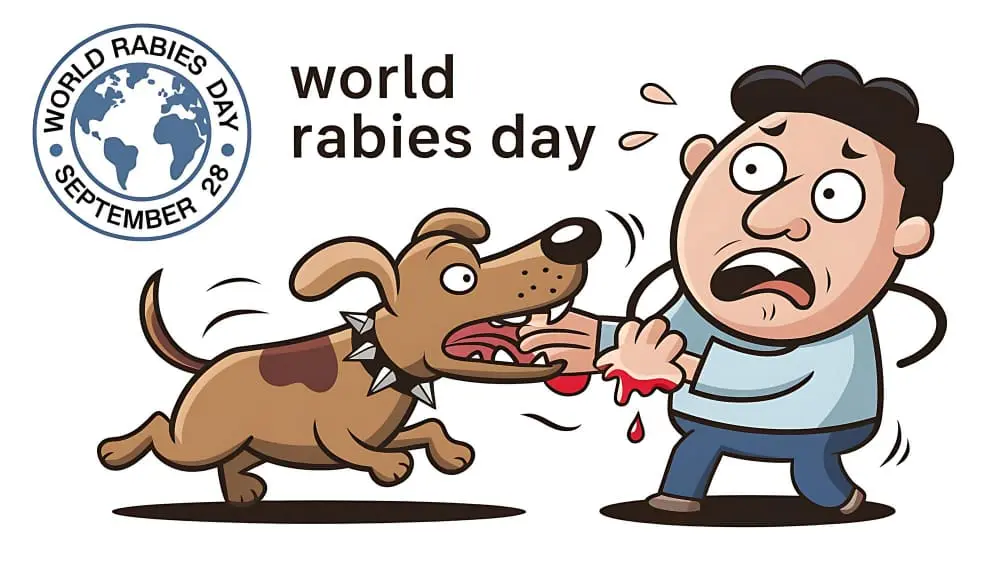Rabies is one of the most feared diseases in the world, and for good reason it’s almost always fatal once symptoms appear. However, rabies prevention is not only possible but also highly effective. In this article, we’ll debunk common myths about rabies, share vital facts, and give you the steps you need to take to protect yourself, your pets, and your loved ones from this deadly virus.
Understanding Rabies: Myths vs. Facts
Myth: Rabies only affects pets and wildlife.
Fact: While pets and wildlife are the most common carriers, rabies can infect any mammal, including humans. The virus is transmitted through the saliva of an infected animal, usually via a bite or scratch. Even domestic animals can contract rabies if they are not properly vaccinated or come into contact with infected wildlife.
Myth: Rabies is rare and not something to worry about.
Fact: Rabies might be rare in certain regions, thanks to widespread vaccination programs, but it remains a serious public health issue in many parts of the world. The World Health Organization (WHO) reports that rabies causes tens of thousands of deaths globally every year, with most cases occurring in Asia and Africa. Rabies prevention is essential, particularly for those who live in or travel to areas where the disease is prevalent.
Myth: You can tell if an animal has rabies just by looking at it.
Fact: One of the most dangerous aspects of rabies is that animals may not always show obvious signs of illness. While classic symptoms like foaming at the mouth, aggressive behavior, or paralysis may occur, animals infected with rabies can also appear normal, especially in the early stages of the disease. This makes avoiding direct contact with unfamiliar animals both domestic and wild an important disease prevention measure.
How to Protect Yourself from Rabies
1. Keep Your Pets Vaccinated
Vaccination is the most effective way to protect your pets from rabies. Most countries require regular rabies vaccinations for dogs and, in some cases, cats. Ensuring that your pets are up to date on their rabies shots not only keeps them safe but also helps prevent the disease from spreading to humans.
2. Avoid Contact with Wildlife
While it might be tempting to feed or approach wild animals, especially if they seem friendly, it’s important to keep your distance. Wild animals like raccoons, bats, foxes, and skunks are common rabies carriers. If you spot an animal behaving unusually such as a nocturnal animal being active during the day it’s best to stay away and contact local animal control.
3. Supervise Pets When Outdoors
If you live in an area where rabies is common, it’s important to supervise your pets when they are outside. Dogs and cats can easily come into contact with infected wildlife, especially in rural or wooded areas. Keeping them on a leash or in a controlled environment can minimize the risk.
4. Teach Children About Rabies Prevention
Children are often curious about animals and might try to pet or pick up stray dogs or cats. It’s important to educate them about the dangers of interacting with unknown animals and to encourage them to report any bites or scratches immediately.
What to Do If You Think You’ve Been Exposed to Rabies
Rabies exposure usually occurs through the bite or scratch of an infected animal, but it can also happen if infected saliva comes into contact with broken skin or mucous membranes. If you think you’ve been exposed to rabies, it’s crucial to act quickly.
1. Wash the Wound Immediately
The first step is to thoroughly wash the wound with soap and water for at least 15 minutes. This helps remove some of the virus and can reduce your chances of infection. Avoid using harsh chemicals or alcohol on the wound, as they can irritate the skin.
2. Seek Medical Attention
Even if the bite seems minor, it’s important to seek medical help as soon as possible. A healthcare professional will evaluate your risk and may recommend rabies treatment, which typically involves a series of rabies vaccinations. The treatment, known as post-exposure prophylaxis (PEP), is extremely effective at preventing the virus from taking hold if administered before symptoms appear.
3. Identify the Animal (If Safe)
If possible, try to identify the animal that bit you. If the animal can be captured safely, it may be tested for rabies, which can help determine whether you need treatment. However, never attempt to capture a potentially rabid animal yourself leave that to professionals.
The Importance of Rabies Vaccination for Pets
Keeping your pets vaccinated against rabies is not only essential for their health but also a legal requirement in many regions. Rabies vaccinations for pets create a protective barrier that prevents the disease from spreading between animals and humans. Here are a few reasons why keeping up with your pet’s vaccinations is so critical:
- Protect Your Pet’s Health: Rabies is almost always fatal for unvaccinated animals. By vaccinating your pet, you are giving them the best possible defense against this deadly virus.
- Prevent Human Exposure: Pets that come into contact with infected wildlife can bring rabies into your home, putting you and your family at risk. Regular vaccinations significantly reduce the likelihood of this happening.
- Comply with Local Laws: Most areas have laws that require regular rabies vaccinations for pets, especially dogs. Failing to comply could result in fines or other legal consequences, and in the event your pet bites someone, unvaccinated animals are often subject to quarantine or euthanasia.
Final Thoughts: Rabies Prevention is Key
Rabies is a serious, often deadly disease, but it’s also preventable. By staying informed, vaccinating your pets, and taking appropriate precautions, you can significantly reduce your risk of exposure. Whether you’re a pet owner, someone who enjoys spending time in nature, or a traveler visiting areas where rabies is common, taking steps toward rabies prevention is essential for your health and safety.
If you’re ever in doubt about an encounter with a potentially rabid animal, don’t hesitate to seek medical attention rabies treatment is most effective when administered promptly. Remember, while rabies is terrifying, with proper vaccination and prevention strategies, it’s a disease you can protect yourself and your loved ones from.





